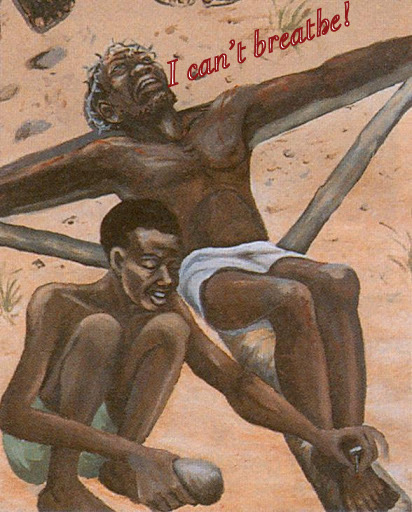 In a few years of my life as a Missionary Oblate of Mary Immaculate, I have lived with many brothers from Africa, Asia, Europe and the Americas. In my prenovitiate year, I had a French community superior. In my novitiate year, I had a Polish and an Italian novice masters. In my eight years of Scholasticate, I had a Polish and an Italian superiors again.
In a few years of my life as a Missionary Oblate of Mary Immaculate, I have lived with many brothers from Africa, Asia, Europe and the Americas. In my prenovitiate year, I had a French community superior. In my novitiate year, I had a Polish and an Italian novice masters. In my eight years of Scholasticate, I had a Polish and an Italian superiors again. I also studied with brothers from different parts of the globe. In my theology years, I was one of (around) five black students in a class of more than seventy students. And within all these years of formation and missionary experiences, I have met so many black and white folks that I do not need anyone to tell me that racism is not about our skin colour.
More still, all those who travel a lot, through different international airports, must have known that both their names and the colour of their passport could influence how many hours they spend at the checking point. I have been delayed in Spain, in France, in Germany and in Canada. And the one that disturbed me most was not when I was segregated by white folks. No, I have grown to anticipate that. It was, rather, at the Montreal International Airport, when on two different occasions, two black immigration officers either doubted my statement or had to reverify my passport after their white colleagues had done that. I felt like they should have known the pains of being discriminated against.
And even in my missionary life, I have had to face racial discriminations both from the lay faithful as well as from certain high-ranked church leaders. Still, I either saw those as individual cases or tried to see the perpetrators as suffering from inferiority complex.
Generally, I try to avoid discussing it, either because I have to be sure I am not gripped with the victim mentality or trying to overreact.
However, when I compare all these, with the way blacks are treated by the police in the United States of America, I am tempted to think that the American society is afraid of discussing how its system is structurally racist. The killing of George Floyd has made me rethink my relationship with the question of being black (in America). And each time I think of visiting that country of which my brethren dwell, it comes to my mind that I can be killed at any moment by a lunatic who thinks that the colour of my skin could constitute a threat to his or her life.
In this blog post, I tried to analyze, from my understanding, how the killing of George Floyd is not an ordinary random act of police violence and brutality, but rather a perpetuation of structured (systematic) systemic racism tolerated by the American security system and the American society.
Have a look at it if you care to know





